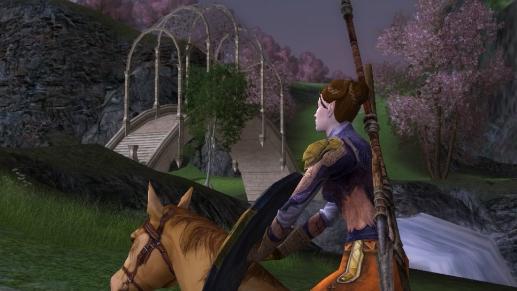op-ed
Latest

Motorola’s endless rehashes will only make it less relevant
Despite being having the third largest market share for smartphones in the US, Motorola's recent pattern of releasing too many low-quality handsets is becoming an issue.

Apple VP says FBI's order makes everyone less secure
To support their legal battle in Congress over San Bernardino shooter Syed Rizwan Farook's iPhone, Apple and the FBI are also waging a war of public opinion. So far, the FBI is winning, with over half the US population, 51 percent, saying that Apple should unlock the device, and only 38 percent saying it shouldn't. Last month, FBI director James Comey penned an editorial to convince the public that Apple must help the agency, and now, Apple VP Craig Federighi has fired back in the Washington Post. In an op-ed piece, he argues that the FBI is endangering everyone's data by "turn[ing] back the clock to a less-secure time."

Massively-that-was
I have sad news for the Massively staff and community today, news most of you already knew was coming. This week, we learned our AOL overlords have decided that they no longer wish to be in the enthusiast blog business and are shutting all of them down. This mass-sunset includes decade-old gaming journalism icon Joystiq, and therefore, it includes us. February 3rd, 2015, will be the final day of operation for Massively-that-was.

Working As Intended: The MMOs we lost in 2014
Almost exactly a year ago, I wrote about how Vanguard's early stumbles foreshadowed the changing MMORPG industry. In January 2007, when Vanguard lurched its way to launch, the genre was barely a decade old; it was booming, and it had never suffered hardship on a massive scale. In the west, we'd seen only three "major" MMOs sunset (Motor City Online, Earth and Beyond, and Asheron's Call 2), and only one MMO, Anarchy Online, had "gone F2P," though we hadn't yet thought to call it yet because it was such a rare and new thing. In fact, it wasn't until 2008's first big wave of AAA, post-World of Warcraft MMOs launched and mostly flopped that MMORPG players gave much thought to the future of the genre and how WoW had reshaped (and possibly broken) it. Maybe not even then. Here in 2015, sunsets are commonplace, and the vast majority of modern MMOs have adopted some sort of subscriptionless model. Last year, we lost more than a dozen MMOs, including Vanguard itself, all of them wiped from the face of the earth (at least until someone decides to resurrect them), and several more under development were canceled, leading to concern among industry watchers like those of us who pen for Massively. Let's try to get some perspective and revisit the MMOs we lost in 2014.

The Soapbox: Of course I care what you're doing in MMOs
I mulled being positive about the MMO industry as a new year's resolution. Then I remembered that new year's resolutions are silly because if it takes an arbitrary date and a contrived occasion to do something, that something is probably not worth doing! With that in mind, let's kick off the 2015 Soapbox season with a mini-rant about one of the nuttier MMO-related misconceptions of all time. I ran across this gem on a forum very recently, and while it's not a new notion, it's a dumb notion and therefore it's worth blowing up. What's the notion? Here, let me just quote the poster. "Why do you care what other players do in an MMORPG? It doesn't affect you."

Under construction: Who benefits from MMO early access?
On its Early Access page, Steam posts a manifesto of sorts praising this radical new type of development in which players get in on the alpha or pre-alpha stage, saying, "This is the way that games should be made." Is it? I'm not so sure. Early access -- and all of the other similar names for the same concept -- appears to be the latest trend that's sweeping not just MMOs but video games in general. Both Steam and crowdfunding sites like Kickstarter are largely responsible for promoting early access, and it has been a popular attraction for players who previously had to sit on their hands and wait for a game to get, y'know, finished. Now we can indulge instantly and run around the structure even as it's still under construction. I was talking about early access with Bree on the podcast the other day, and both of us were expressing distaste and an increasing uneasiness with the early access trend. Popular as it may be, is it really the way that games should be made? Will it result in better titles in the end? And who is getting what, exactly, out of it? It's this last question I want to address today.

The Soapbox: Better models for MMO endgame progression, part three
Today marks the last entry in my better models for MMO endgame progression series, the follow-up to my series on why MMO studios should abandon raiding. And that means providing two more possible models along with something of a thesis statement. But it also means that at this point I'm far more willing to wander off into the woods with these ideas. The first part had slight twists on standard formulas, the second had ideas that was a bit further afield, and this one features two ideas that are still almost entirely unrefined. More specifically, today's concepts are more about tackling the very principle that progress has to be tied past a certain point to things that you get. You earn a thing and then you're better. But there's no reason that progress can't be oriented the other way, with the gear (etc.) just being a gating mechanism for your actual forward motion. The funny part is that a lot of these systems aren't really at odds with one another; they can coexist without too much trouble. But then, that's the nature of the beast.

The Soapbox: Better models for MMO endgame progression, part two
If you read yesterday's Soapbox, the first in my Better models for MMO endgame progression series, with a fair bit of awareness, you probably noticed that the models I presented were, well... safe. Normal. Not too far outside of the realm of what we already have in some games, in other words. Oh, sure, they were functional and expanded compared to what you normally see in games, and they weren't reliant on high-end raiding, but they were still derived from the same space, which is part of the point. But that's not nearly as far as the rabbit hole goes. So let's start moving further beyond what's already common. Let's start heading into stranger territory. As before, the models presented here are not super-refined balanced labyrinths of systems; they're the outline, the skeletons, the fundamentals of how these concepts could work. And even at this stage, they're able to go in directions you don't find in numerous MMO endgames. So let's jump right into it, shall we?

The Soapbox: Better models for MMO endgame progression, part one
Last month, my three-part Soapbox series on reasons studios should abandon raiding as the core mechanic of their MMOs produced no shortage of comments. One of the persistent refrains from the pro-raid side was, as expected, "if you're so smart, why aren't you proposing alternatives?!" The obvious answer would be that it wasn't the point of the articles. The series was about reasons to drop raiding, after all. But it's also not as simple as "here's what games should be doing" because there are countless alternatives. Tons of alternatives. I can think of at least six off the top of my head. So for this new series, let's consider models that don't rely upon raiding as an endgame progression model. Some of these are close cousins to endgame models found in games currently on the market, some of them are not, and none of them has been designed with fine details or lore or what-not in mind. They're drag-and-drop, as it were. The point here is explaining the multitude of options available for an MMO's endgame that don't rely upon raiding for their focus. Today's article will cover the first two of six I have in mind.

The Soapbox: Six reasons MMOs should abandon raiding, part 3
In parts one and two of this Soapbox miniseries, I tackled four of the reasons the MMO genre should abandon raiding as a central gameplay element, but one key argument has been left out until now: The social aspect of raiding. Whatever else is true of raiding, it is definitely social. Communities spring up and keep going largely based on that raiding community, to the point that it's easy to assume that everyone in a game's population raids. There are lengthy discussions about raiding, about how to raid, about tips and tricks for clearing raids. The social aspect of raids is what I think has kept them around so long; it's easy for a designer to look at that sort of engagement and see it as vital. Yet there's more to the story than might be available at a glance, and the social aspect is not without steep costs. Those social elements do not carry the weight of everything else... mostly because they aren't as strong as they appear.

The Soapbox: Six reasons MMOs should abandon raiding, part 2
In yesterday's Soapbox, I had some things to say about why it's time to dump raiding. I'm writing this before I've seen the comment responses, but I'm willing to bet that a fair amount of angry shouting was involved in the comments because that's what I usually expect. But I wasn't done, as suggested by the whole "part 1" thing in the title header. For those don't feel like reading the whole thing, the short version is that raiding is too expensive to develop for too small a portion of the players. This is a solid argument, but it's standard: You hear it every time this debate comes up. In some ways, it's the foundation of the argument against raiding beyond the reality that most people say they just don't like raiding. There's more to be said, though, and there are more serious issues up for discussion. Raiding isn't just expensive in terms of development. It's expensive in lots of ways.

The Soapbox: Six reasons MMOs should abandon raiding, part 1
Raiding is no longer doing MMOs any favors. I've compared raiding to open PvP in the past, and the comparison still holds up. It's something that a lot of games developed in response to a specific genre-defining game have featured. But it's not doing those games any favors, and it might be time to take a hard look at this gameplay element that games survive in spite of rather than because of. If we learn nothing else from WildStar's issues when it launched into what should have been an ideal environment, it's that raiding certainly isn't driving players into a game's waiting arms. But I don't want to just say that and let it roll around on the floor. Let's actually break the argument down across a couple of articles this week. Why does raiding need to shuffle off of the main stage, definitely as the default endgame model, perhaps altogether? I can give you six good reasons.

The Soapbox: In praise of SWTOR's 12X experience
It's taken 12 times the normal XP rate, but Star Wars: The Old Republic is finally my main MMO (at least for another week or so). Well, OK, it's also taken a series of spectacularly ill-considered decisions by XLGAMES and Trion, but that's a rant for another day. I've been playing SWTOR quite a lot over the past month since BioWare's subscriber-only pre-expansion boost has cut all of the godawful grindpark garbage right out of a galaxy far, far away. Too bad it's just a temporary fix, though -- here's hoping that the devs give veterans the option of keeping the XP bonus long after December 1st.

Working As Intended: Niche MMOs vs. the everything box
The MMO industry has lately focused on niche titles, niche communities, niche gameplay. It's not one particular niche, mind you. It's lots of different niches, all being catered to in different titles: PvPers, sadistic gankers, raiders, dungeoners, roleplayers, crafters, explorers, achievers, soloers, storygoers, casuals, hardcores, builders, destroyers, the I'm-skipping-class-for-a-week-to-play-games kids, the I've-got-five-minutes-what-can-I-play parents. There's an MMO or two out there for pretty much every one of us -- and for almost no one else. So we dutifully buy the one that beckons directly to us, one of these small-minded "MMOs" that offer rewards for a certain playstyle or two but wilfully disregard every other imaginable playstyle. We applaud these games for having the guts to embrace being "niche" because we are convinced that having lots of little niche games is diversity. And then we wonder where all the players are.

Why I Play: ArcheAge
Addicted may be too strong a word when talking about my relationship to ArcheAge... but not by much! Have I logged in every day since the early access? Do I look forward to logging in? Have I said, "I'll go to bed right after I plant a couple more things" only to find more hours have slipped by before I finally do sleep? Do I get excited about the next trade run? Have I set alarms to wake up to try and nab a prime piece of land? Have I had dreams about ArcheAge when I sleep? The answer to all of these is yes. ArcheAge may not have everything I have ever wanted in a game (entertainment classes should be a requirement), but it checks more than a few of my boxes. I haven't had this much fun throwing myself into a game in a very long time. I look forward to each play session, and I tend to spend hours in game each day enjoying whatever I happen to be doing, be it sailing, trade runs, sneaking into enemy territory, or even just staring at my plants waiting for them to grow.

Working As Intended: But I already have that game
Back in 2001, I desperately wanted out of EverQuest. I hated the gameplay. I hated the community. I loved my guildies, but I hated what our guild was becoming, consumed by a grindy rat race so different from our roots in Ultima Online. When Dark Age of Camelot offered a way out, I took it, dragging as many guildies as I could along with me to a game where PvP and territory control, not camp checks and plane raids, ruled the day. Some of them didn't come with us, and I couldn't understand why they wouldn't jump at the chance to start fresh, to be rid of a self-destructive community and gear grind. What was wrong with them, I wondered, that they'd stay in some old thing rather than play the new shiny? Dozens upon dozens of MMOs later, I finally understand: They already had that game.

Working As Intended: Lessons from the history of MMO housing
Once upon a time, a subscription MMORPG sandbox had open-world housing, only there wasn't quite enough for everyone. Well, there was, but there wasn't enough of it in safe lands, so a lot of the people who wanted a place to live had to live in dangerous places they didn't like, places where they could be killed on their doorstep by other players. Even most of the plots in the safe lands were so remote or allowed for such small homes that they were undesirable. In fact, there were only a few housing plots on every server that afforded a strategic advantage in PvP or trade or storage, and if you didn't own one of those, you were at a distinct disadvantage. And when new lands opened up, scripters and gold farmers were first in line to grab the best plots and sell them on Ebay for hundreds (sometimes thousands!) of dollars. And legit players were pissed. I speak, of course, not of ArcheAge but of Ultima Online.

Op-ed: NHL 15 and the Case of the Missing Modes
It would come as no shock to anyone, as stereotypical as it may seem, that I have been looking forward to NHL 15 on Xbox One and PS4. I am, of course, Canadian. Some of my chief complaints from the series in recent years have been its presentation, which has made a habit of reusing animations, commentary, presentation packages and more. I apparently wasn't the only one with these issues. By E3 2014, the language coming from EA was "We heard you, NHL 15 is going to pull out all the stops." A brand new and impressive presentation package, in collaboration with NBC Sports, was created bringing the quality of the NHL series to heights that I haven't seen (or felt) since I watched an animated Ron Barr welcome me to a game in NHL '94. EA Canada also added a new commentary team to the mix, piled on new physics that brought the series closer to reality and seemingly shoehorned an impressive list of other technical ideas into a game that, on paper, seemed bursting at its seams (or laces, whatever floats your boat). And then the shoe (or skate, perhaps) dropped.

Working As Intended: The unfortunate conflation of sandboxes and PvP
A certain perplexing belief about sandboxes pervades the blog comments, forums, and general chats of MMOs: All MMO sandboxes are free-for-all PvP games. If it doesn't have free-for-all PvP, it's by definition not a sandbox because sandboxes let the players make all the rules and decisions. Free-for-all PvP adds the necessary spice to keep you on your toes and keep a game fresh. Without it, you may as well be playing The Sims. All of these statements are wrong.

Working As Intended: It's not the journey or the destination
If you play MMORPGs, you've no doubt been told, hundreds of times, "Slow down! Don't rush! Stop to smell the flowers! It's the journey, not the destination!" Typically, you're being told to slow down in an MMO whose focus is the destination: the endgame. All the good stuff is at the end. The best dungeons are there. The best gear is there. The best PvP content and titles and achievements are there. The players the devs cater to are there. Patches and expansions provide new content there. In fact, the only reason to play the rest of the game is to level up to get there. The midgame is a hindrance, a barrier to the "real" game, and it's usually neglected by developers once most players are through it. So if games themselves reward you only for arriving at the destination, why on earth should you feel bad for not savoring the journey?






